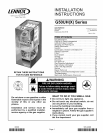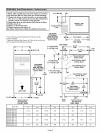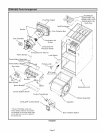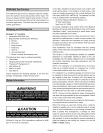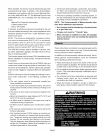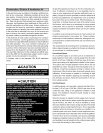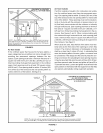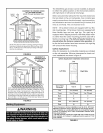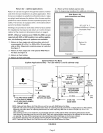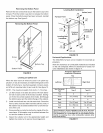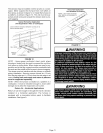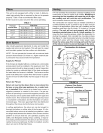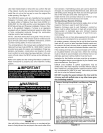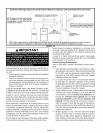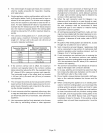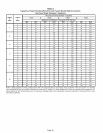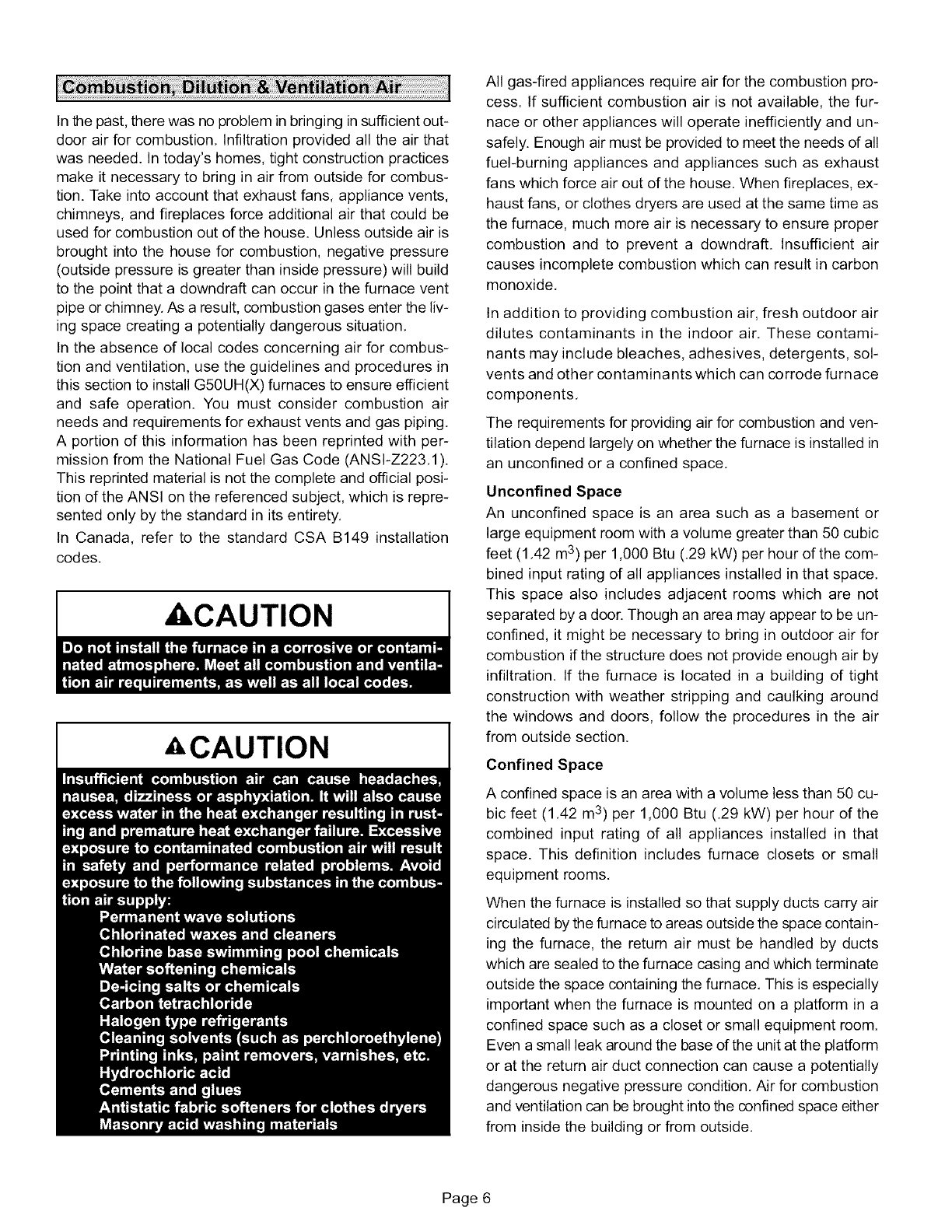
Inthepast,therewasnoprobleminbringinginsufficientout-
doorairforcombustion.Infiltrationprovidedalltheairthat
wasneeded.Intoday'shomes,tightconstructionpractices
makeit necessaryto bringinairfromoutsideforcombus-
tion.Takeintoaccountthatexhaustfans,appliancevents,
chimneys,andfireplacesforceadditionalairthatcouldbe
usedforcombustionoutofthehouse.Unlessoutsideairis
broughtintothehouseforcombustion,negativepressure
(outsidepressureisgreaterthaninsidepressure)willbuild
tothepointthatadowndraftcanoccurinthefurnacevent
pipeorchimney.Asaresult,combustiongasesentertheliv-
ingspacecreatinga potentiallydangeroussituation.
Intheabsenceoflocalcodesconcerningairforcombus-
tionandventilation,usetheguidelinesandproceduresin
thissectiontoinstallG50UH(X)furnacestoensureefficient
andsafeoperation.Youmustconsidercombustionair
needsandrequirementsforexhaustventsandgaspiping.
A portionof thisinformationhasbeenreprintedwithper-
missionfromtheNationalFuelGasCode(ANSI-Z223.1).
Thisreprintedmaterialisnotthecompleteandofficialposi-
tionoftheANSIonthereferencedsubject,whichisrepre-
sentedonlybythestandardinitsentirety.
In Canada,referto the standardCSAB149installation
codes.
ACAUTION
ACAUTION
All gas-fired appliances require air for the combustion pro-
cess. If sufficient combustion air is not available, the fur-
nace or other appliances will operate inefficiently and un-
safely. Enough air must be provided to meet the needs of all
fuel-burning appliances and appliances such as exhaust
fans which force air out of the house. When fireplaces, ex-
haust fans, or clothes dryers are used at the same time as
the furnace, much more air is necessary to ensure proper
combustion and to prevent a downdraft. Insufficient air
causes incomplete combustion which can result in carbon
monoxide,
In addition to providing combustion air, fresh outdoor air
dilutes contaminants in the indoor air. These contami-
nants may include bleaches, adhesives, detergents, sol-
vents and other contaminants which can corrode furnace
components,
The requirements for providing air for combustion and ven-
tilation depend largely on whether the furnace is installed in
an unconfined or a confined space,
Unconfined Space
An unconfined space is an area such as a basement or
large equipment room with a volume greater than 50 cubic
feet (1.42 m3) per 1,000 Btu (.29 kW) per hour of the com-
bined input rating of all appliances installed in that space.
This space also includes adjacent rooms which are not
separated by a door. Though an area may appear to be un-
confined, it might be necessary to bring in outdoor air for
combustion if the structure does not provide enough air by
infiltration. If the furnace is located in a building of tight
construction with weather stripping and caulking around
the windows and doors, follow the procedures in the air
from outside section.
Confined Space
A confined space is an area with a volume less than 50 cu-
bic feet (1.42 m3) per 1,000 Btu (.29 kW) per hour of the
combined input rating of all appliances installed in that
space. This definition includes furnace closets or small
equipment rooms.
When the furnace is installed so that supply ducts carry air
circulated by the furnace to areas outside the space contain-
ing the furnace, the return air must be handled by ducts
which are sealed to the furnace casing and which terminate
outside the space containing the furnace, This is especially
important when the furnace is mounted on a platform in a
confined space such as a closet or small equipment room.
Even a small leak around the base of the unit at the platform
or at the return air duct connection can cause a potentially
dangerous negative pressure condition, Air for combustion
and ventilation can be brought into the confined space either
from inside the building or from outside,
Page 6



